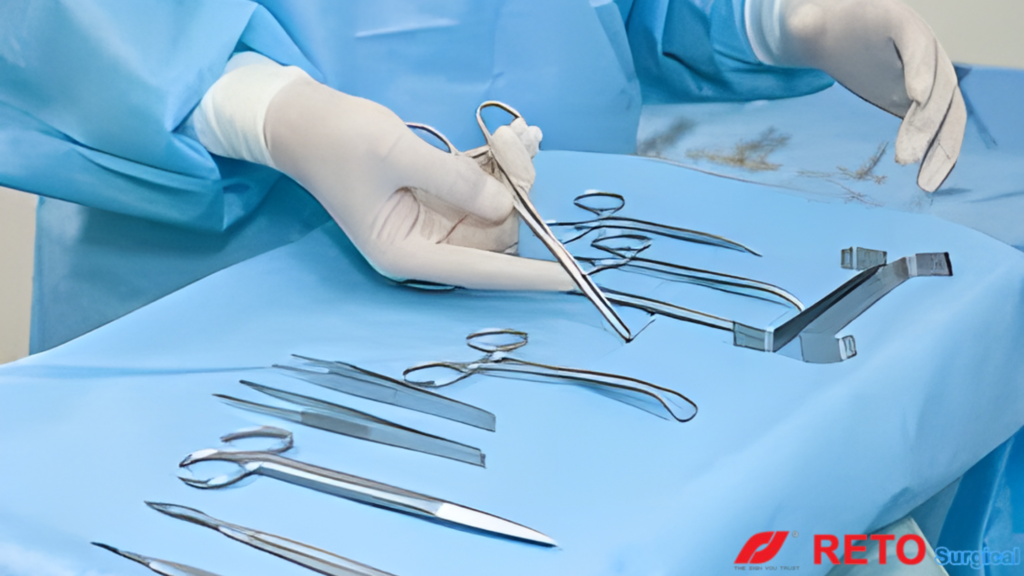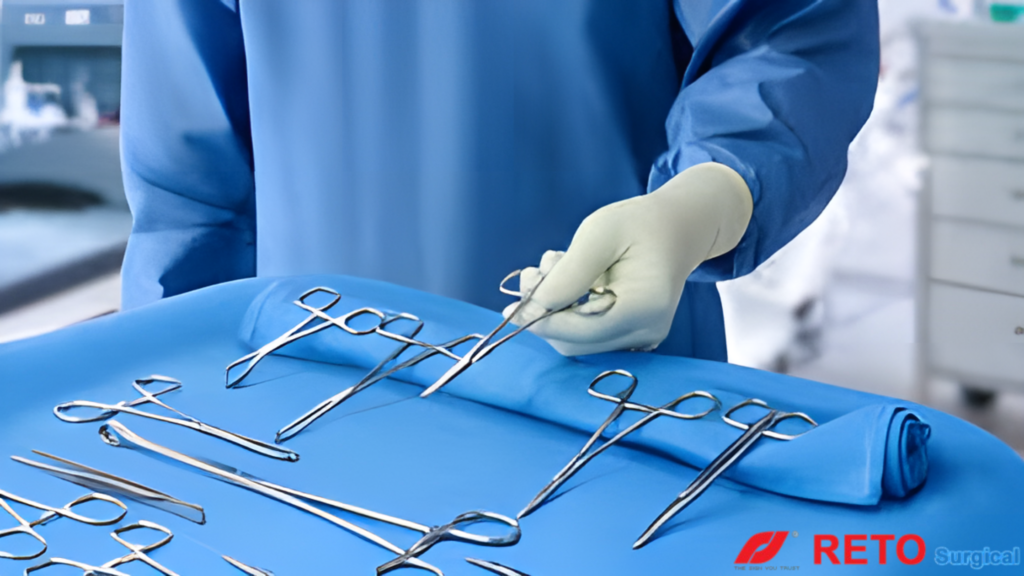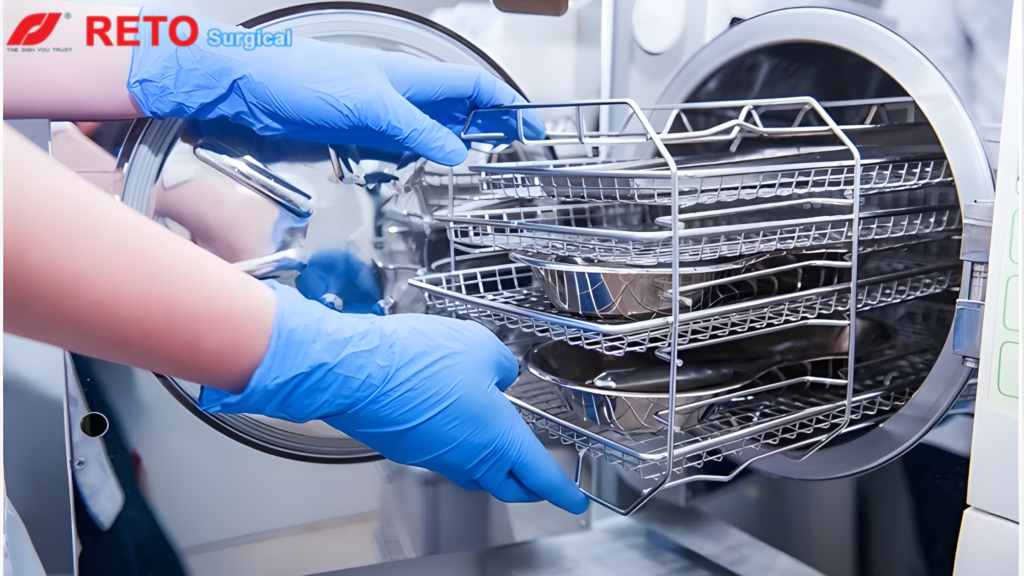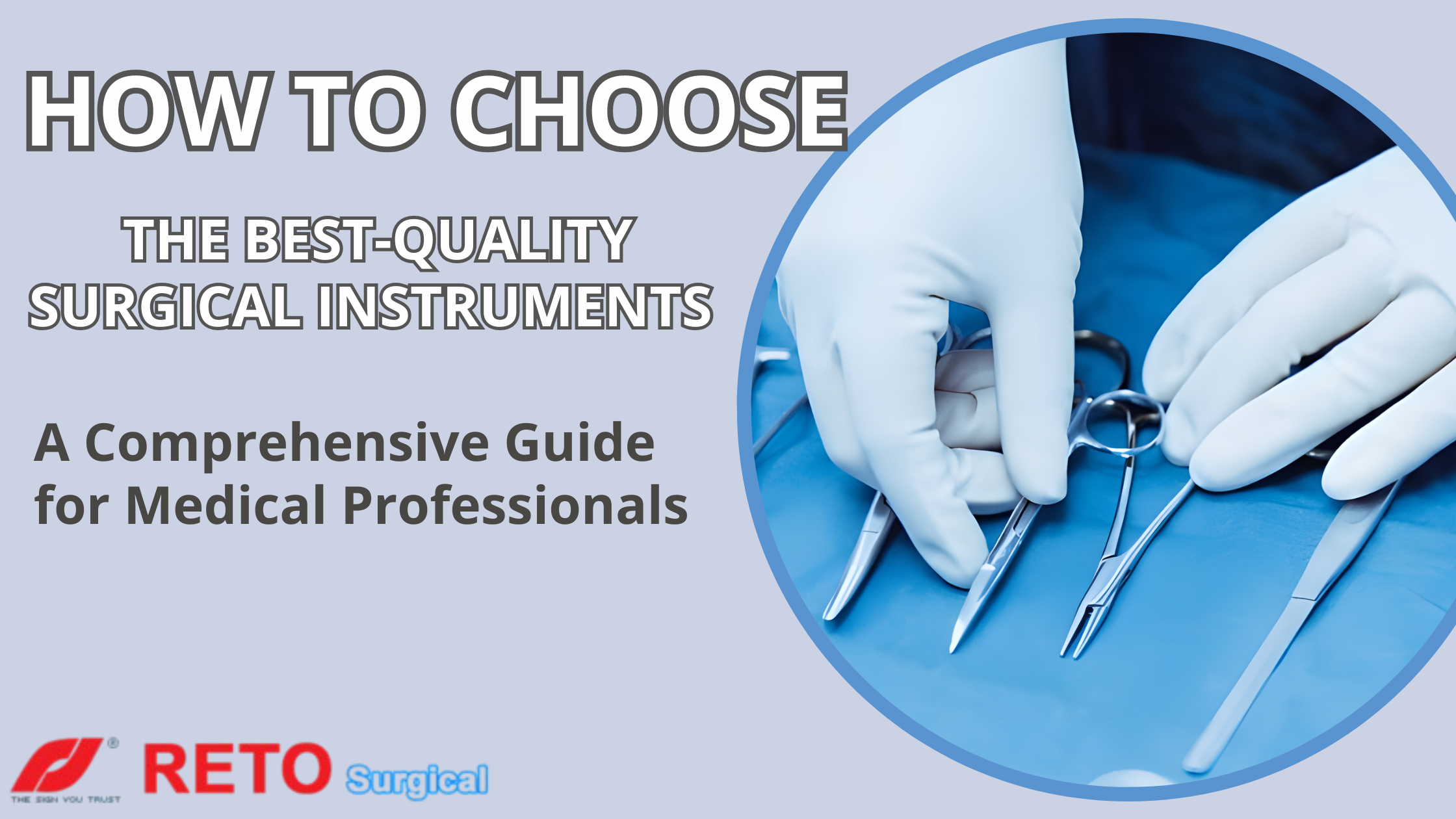How to Choose the Best-Quality Surgical Instruments: A Comprehensive Guide for Medical Professionals
Guide For Choosing Best-Quality Surgical Instruments For Medical Professionals
Medical professionals have to select surgical instruments that provide the highest levels of accuracy, safety, and care of the patient. Instruments are essential in several procedures, so there should be an understanding of performance, durability, and design. Proper tools improve the success rate of surgery, streamline processes, and reduce the chances of complications occurring.
This article is about the material, manufacturing standards, ergonomic designs, and the accreditation of the best surgical instruments. Knowing these essentials will allow healthcare professionals to make informed decisions and purchase equipment they can trust. We’ll take a look at the basics of choosing top-notch surgical instruments that fit your requirements.
What are Surgical Instruments?

Medical doctors use particular tools known as surgical instruments in performing surgery procedures like cutting, dissecting, clamping, retracting, and suturing. Such instruments are usually of high-grade stainless steel or any other material with great strength for the sake of accuracy, durability, and Sterilisation. These include scalpels, forceps, scissors, retractors, and clamps, among others. The quality and designs of these instruments make them fundamental in the success of these surgeries and proper care by their good and safe nature while performing these delicate medical processes.
Considerations For Selecting the Appropriate Instrument
Choosing the right instrument depends on several factors. Here are the key considerations:

1. Patient Safety
The best surgical instruments require great care regarding patient safety. High-quality materials are used in making the instruments. These tools are made as sterile as possible to cause minimal tissue damage. Non-bladed surgical instruments are used to prevent as much internal organ damage as possible.
2. Instrument Quality
Quality will determine how long and the efficiency of a surgical instrument. All the instruments are manufactured by ensuring they meet some industry manufacturing standard. The less likely to malfunction in surgery means high-quality instrumentation makes the operation safer and a little easier.
3. Maintenance and Sterilisation
Sterilisation or care of surgical instruments must also be considered. Disposable equipment should not be sterilised although it may be more hygienic in the long run, expensive to use. Reusable equipment must be easy to clean and sterilise so they can be both safe and effective in the long term.
4. Ease of Use
The surgical instruments should be easy to use and handle. Ergonomic designs enhance the precision and reduce fatigue. For example, the ease of use of skin staplers with comfortable grip results in precise and quick wound closure.
Basic Surgical Instruments
A set of fundamental basic surgical tools that are necessary for several operations and can be versatile should comprise any clinic. They may include the following:
- Scalpels and Blades: Scalpels are one of the equipment parts in every surgery kit because they cut very well and neatly.
- Scissors: Surgical scissors have a range between being short and long and curvatures but serve a specific function such as cutting bandages, sutures, or any tissue.
- Retractors: Retractors are used to make access and visibility easy during surgery. This is achieved through opening the surgical area and holding back other tissues.
- Needle Holders: These are designed to grasp the suturing needle in a secure manner so that accurate stitching may be performed to close the wounds.
- Forceps: In both minor and major procedures, forceps are applied to grasp and hold tissues, and for manipulation.
Sterilisation and Servicing Equipments
This clinic will also demand proper sterilisation and maintenance equipment to ensure your surgical instruments remain at their best condition. This can include:

- Autoclaves: Autoclaves used for steam sterilisation ensure surgical equipment is free of harmful bacteria.
- Ultrasonic Cleaners: These machines thoroughly clean instruments by using high-frequency sound waves, which can reach places that manual cleaning could miss.
- Instrument Lubricants: Surgical instruments last longer and continue to work better when regularly lubricated.
Quality Surgical Instruments' Effect on Patient Care
This is mainly reflected in the quality of equipment used for surgery, which directly impacts the results and care of patients. Better quality equipment gives surgeons the ability to conduct the treatment with more precision; such surgeries may reduce the chance of complications and quicken the recovery rate. Patients having surgery with good quality equipment are more likely to have successful cases and spend less time in the hospital.
Moreover, the trust that patients and health-care providers have for equipment is also encouraged. The assurance that your healthcare provider team uses only high-quality tools for their work will continue to increase the confidence of patients regarding the quality of care they are being provided. This is what will ensure continued success and long-term relationships with your patients.
Conclusion
High-quality instruments enhance the surgical instruments purchase ability to achieve improved patient outcomes and healthcare development. Designs in the surgeries that are more precise, strong, and ergonomic easily reduce risks and shorten the recovery time. Devices made from high-quality materials, plus strict manufacturing guidelines, ensure safety, maintain sterility, and lower problems with the services provided. High-quality instruments enhance confidence in care through instilling trust between a medical professional and their patients. When the best tools are selected, patient satisfaction increases regarding the reputation of any healthcare practice.
FAQ’s
Q1. Why is understanding surgical instruments important?
Any surgery would not be complete without a surgical instrument. Every tool has its purpose. Pain doctors should be more knowledgeable about surgical equipment because the pain procedures are becoming more complicated and painful.
Q2. How frequently should surgical tools be lubricated?
Regular lubrication of moving parts in instruments such as ratchets, screw joints, box locks, and joints are required. Moving-part instruments are always lubricated with water-based surgical lubricants as they allow for steam penetration prior to autoclaving.
Q3. How Do I Buy the Best Quality Surgical Instruments
An essential part of providing sound healthcare is investing in quality surgical instruments. With diagnosis and treatment so heavily dependent on efficient medical equipment, healthcare providers must ensure they have suitable instruments.


One thought on “How to Choose the Best-Quality Surgical Instruments: A Comprehensive Guide for Medical Professionals”
Pingback: All About the Reliable Surgical Instruments Manufacturer - Retosurgical